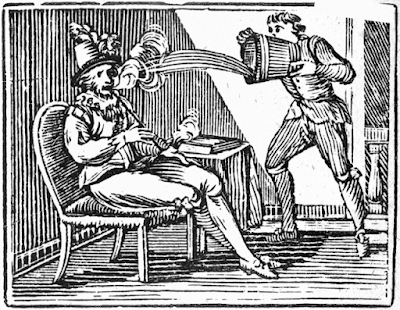Today I'm delighted to hand over the blog to author Tony Riches, whose new release Raleigh -Tudor Adventurer, is out now. Over to you, Tony:
 |
| Tudor adventurer, courtier, explorer, and poet, Sir Walter Raleigh has been called the last true Elizabethan |
My Elizabethan series began when I was researching for an historical novel about Henry Tudor, who like me was born in the town of Pembroke, Wales. I eventually uncovered enough original material to write three books, with Henry being born in the first, coming of age in the second and becoming King of England in the third.
The result was my best-selling Tudor Trilogy, and I decided to continue the stories of the Tudors in a continuous line. I also made a conscious decision to tell the stories through those surrounding King Henry VIII and Queen Elizabeth I, so we see different facets of these complex rulers through the eyes of others.
For my Elizabethan series I chose three very different favourites of the queen, who each saw different sides of her personality. Sir Francis Drake showered her with gold and jewels, stolen from the Spanish, in return for the status he longed for. The Earl of Essex was like the errant son she never had, but Raleigh became her protector, Captain of the Guard, and lived to see the last days of the Tudor dynasty.
I’ve developed a system of researching during the summer months, writing through the autumn and winter, then editing in the spring. For my research, I like visiting the actual locations used in my books, and tracking down primary sources. In the case of Walter Raleigh, I also studied his surviving letters and papers.
Raleigh’s personal archive was scattered widely, with many of his papers thought to be lost. Fortunately for me, the late Professor of English at Bedford College, Agnes Latham, spent her life discovering and transcribing over two hundred of Raleigh’s letters, assisted by the work of the late Devon historian Joyce Youings, who was Emeritus Professor of English Social History at the University of Exeter. Agnes Latham also collected all surviving examples of Raleigh’s poetry, adding her invaluable commentary.
As well as offering me an authentic sense of Raleigh’s ‘voice’ and how he addressed others of the Elizabethan Court, these letters were a great help in sorting out the often confusing timeline of events. I was of aware of Raleigh’s tendency to exaggerate, flatter and posture in his writing, but there is no better way to develop an understanding of his motives.
Many of the things I thought I knew about Walter Raleigh proved to be wrong. Raleigh is credited with introducing the potato and tobacco to Britain, but I’ve seen no evidence for either, or for the popular tale of a servant throwing water over him when he mistook the smoke from Raleigh’s pipe for a fire!
 |
| Sir Walter Raleigh being doused! |
 |
| Sherborne Castle |


.jpg)



No comments:
Post a Comment